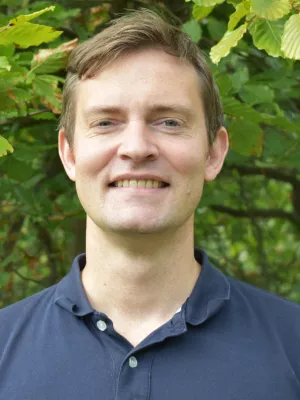
Yann Clough
Professor

Experimental biodiversity enrichment in oil-palm-dominated landscapes in Indonesia
Author
Summary, in English
Tropical biodiversity is threatened by the expansion of oil-palm plantations. Reduced-impact farming systems such as agroforests, have been proposed to increase biodiversity and ecosystem functioning. In regions where oil-palm plantations already dominate the landscape, this increase can only be achieved through systematic ecological restoration. However, our knowledge about the underlying ecological and socio-economic processes, constraints, and trade-offs of ecological restoration in oilpalm landscapes is very limited. To bridge this gap, we established a long-term biodiversity enrichment experiment. We established experimental tree islands in a conventional oil-palm plantation and systematically varied plot size, tree diversity, and tree species composition. Here, we describe the rationale and the design of the experiment, the ecosystem variables (soil, topography, canopy openness) and biotic characteristics (associated vegetation, invertebrates, birds) of the experimental site prior to the establishment of the experiment, and initial experimental effects on the fauna. Already one year after establishment of the experiment, tree plantings had an overall positive effect on the bird and invertebrate communities at the plantation scale. The diversity and abundance of invertebrates was positively affected by the size of the tree islands. Based on these results, we expect a further increase of biodiversity and associated ecological functions in the future. The long-term interdisciplinary monitoring of ecosystem variables, flora, fauna, and socio-economic aspects will allow us to evaluate the suitability of tree islands as a restoration measure. Thereof, guidelines for ecologically improved and socio-economically viable restoration and management concepts could be developed.
Department/s
- Centre for Environmental and Climate Science (CEC)
- BECC: Biodiversity and Ecosystem services in a Changing Climate
Publishing year
2016-10-17
Language
English
Publication/Series
Frontiers in Plant Science
Volume
7
Issue
OCTOBER2016
Document type
Journal article
Publisher
Frontiers Media S. A.
Topic
- Environmental Sciences related to Agriculture and Land-use
- Ecology
Keywords
- Agroforestry
- Applied nucleation
- Biodiversity-ecosystem functioning
- Ecological restoration
- Ecosystem services
- Tree planting
Status
Published
ISBN/ISSN/Other
- ISSN: 1664-462X